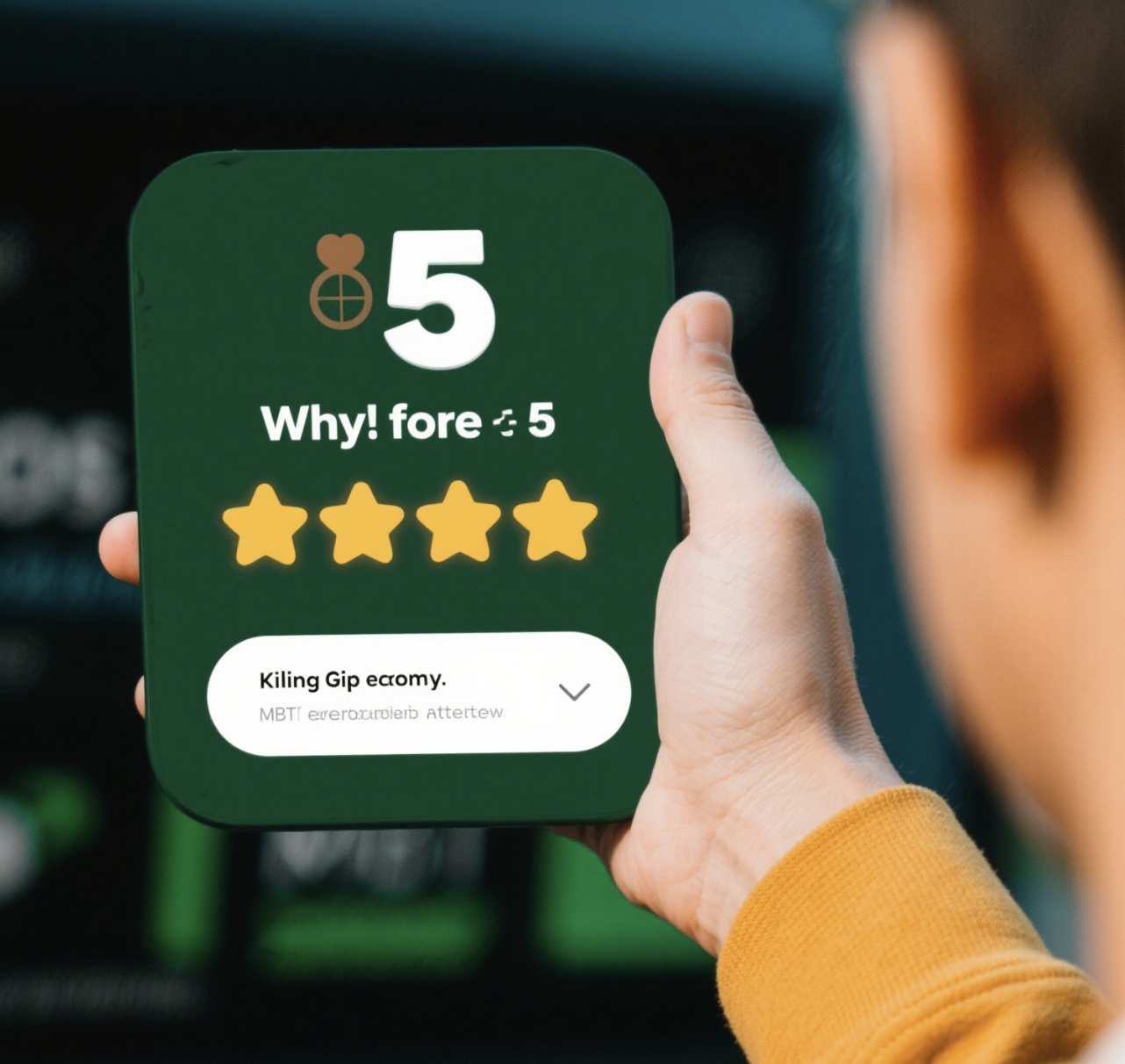Why Forced 5Star Ratings Are Killing the Gig Economy – An MBTI Perspective on Authentic Feedback

Why Forced 5-Star Ratings Are Damaging the Gig Economy (And What Your MBTI Says About It)
In today’s gig economy, service workers—ride-hail drivers, delivery personnel, and couriers—increasingly rely on customer ratings to sustain their livelihoods. However, a troubling trend has emerged: the compulsory solicitation of 5-star reviews. Much like the distortion of tipping culture in the U.S., where gratuity has shifted from a voluntary gesture to a quasi-mandatory surcharge, the pressure to give perfect ratings is undermining the authenticity of feedback systems.
From an MBTI and career psychology standpoint, this phenomenon reveals deeper tensions between personal autonomy, fairness, and systemic trust. Let’s break down why forced ratings backfire—and how different personality types perceive this pressure.
1. The Problem with Solicited Feedback: Autonomy vs. Coercion
When a driver or delivery worker requests a 5-star rating after a routine interaction, it triggers an ethical dilemma. Feedback, by definition, should reflect genuine satisfaction. Forcing it strips the gesture of meaning—akin to a restaurant pre-selecting a 20% tip on your bill.
Judging (J) Types (e.g., ESTJ, INTJ): These individuals value structure and fairness. They may resent the imposition, viewing it as a breach of transactional honesty. An INTJ, for instance, might reject the request outright, seeing it as manipulative.
Perceiving (P) Types (e.g., ENFP, ISFP): More adaptable, they might comply to avoid conflict—but internally, they’ll feel the dissonance. An ISFP, driven by personal values, might later regret caving to pressure.
2. The Erosion of Trust in Rating Systems
Platforms like Uber and DoorDash depend on ratings to maintain quality control. But when every interaction ends with a plea for 5 stars, the system loses credibility.
Thinkers (T) (e.g., ENTJ, ISTP): These types analyze systems logically. An ISTP might note that inflated ratings mislead future customers, creating a “false economy” where mediocrity is rewarded.
Feelers (F) (e.g., INFJ, ESFJ): While empathetic to workers’ struggles, they recognize the injustice. An INFJ might worry that undeserved praise disadvantages truly exceptional providers.
3. Why Delivery Drivers Don’t Ask for Ratings (And What It Reveals)
Unlike ride-hail drivers, couriers rarely solicit reviews. This discrepancy hints at differing incentive structures:
Logistics vs. Direct Interaction: Ride-hail and food delivery involve face-to-face service, where workers can leverage emotional labor (e.g., friendly reminders). Package delivery, often contactless, removes this opportunity.
Personality Fit: High-F types (ENFJ, ISFJ) excel in roles requiring interpersonal rapport, making them more likely to request feedback. Conversely, delivery roles attract introverted or task-focused types (ISTJ, INTP), who may avoid such exchanges.
4. How to Give Authentic Feedback: An MBTI Guide
Your personality type influences how you evaluate services. Here’s how to align feedback with your values:
Extraverts (E): Use your sociability to leave detailed comments. An ENTP might enjoy crafting witty but honest reviews.
Introverts (I): Prefer anonymity? Reserve ratings for standout experiences. An INFP will only endorse services that align with their ideals.
Sensors (S): Focus on tangible details (e.g., “Driver took the fastest route”). An ESTP’s review might highlight efficiency.
Intuitives (N): Consider the bigger picture. An ENFJ might critique how the platform treats workers, not just the individual.
5. The Bigger Picture: Fixing Feedback Systems
Platforms must redesign incentives to reward authentic satisfaction, not coercion. Possible solutions:
Anonymous post-service surveys (appealing to ISTJ’s preference for impartiality).
Tiered rewards for workers who earn organic praise (motivating ESFP’s desire for recognition).
Personality-aware interfaces—e.g., allowing INTPs to skip rating prompts unless they feel strongly.
Final Thoughts
The gig economy’s overreliance on manipulated ratings harms workers, customers, and platforms alike. By understanding your MBTI type, you can navigate these systems with integrity—giving praise where it’s earned and resisting empty gestures. After all, a 5-star rating should signify excellence, not extortion.
Call to Action: What’s your MBTI type, and how do you handle rating requests? Share your thoughts below!




